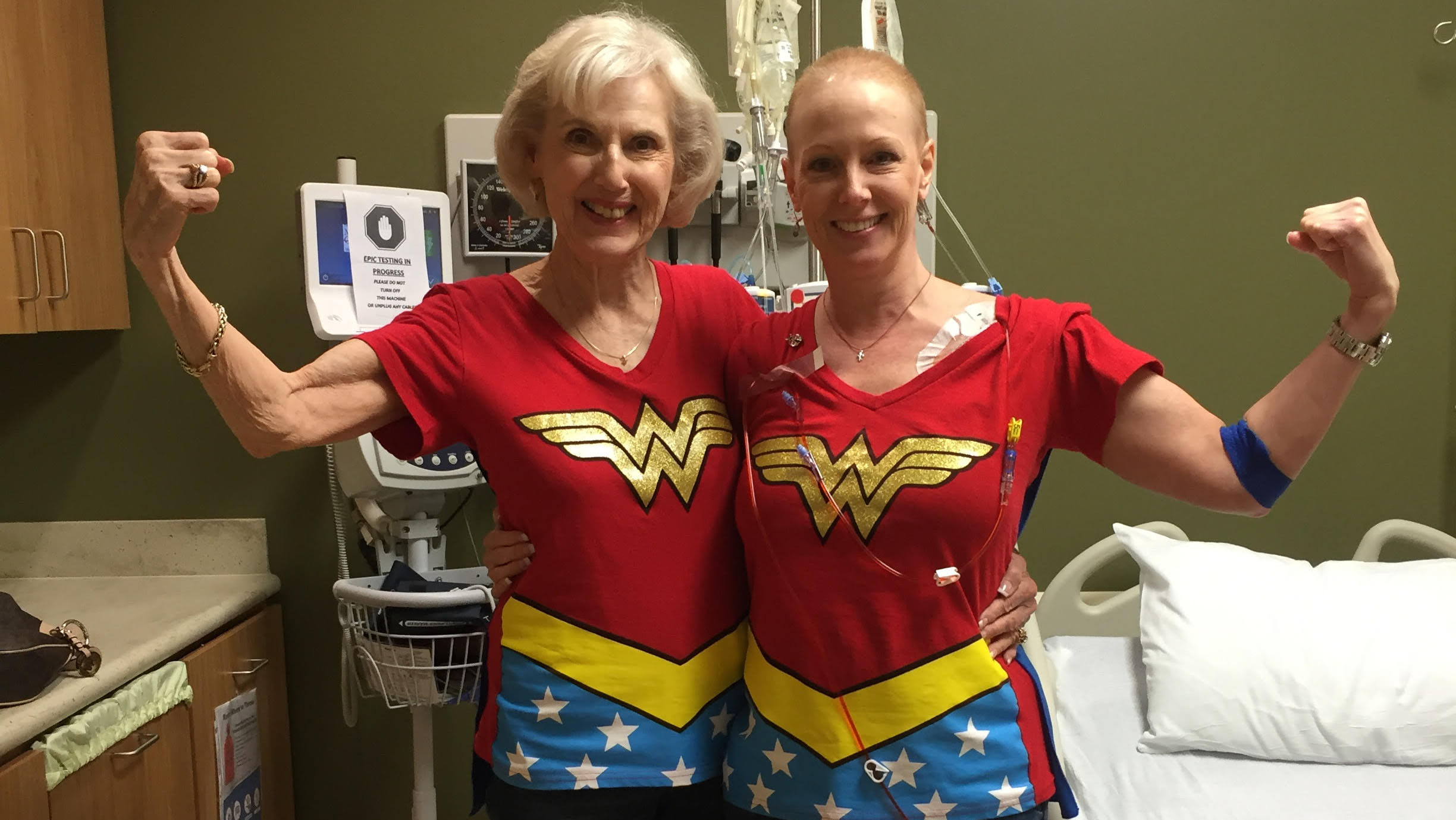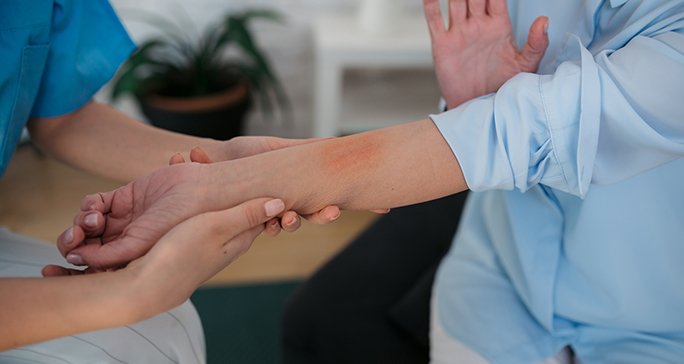- Diseases
- Acoustic Neuroma (14)
- Adrenal Gland Tumor (24)
- Anal Cancer (68)
- Anemia (2)
- Appendix Cancer (16)
- Bile Duct Cancer (26)
- Bladder Cancer (72)
- Brain Metastases (28)
- Brain Tumor (232)
- Breast Cancer (714)
- Breast Implant-Associated Anaplastic Large Cell Lymphoma (2)
- Cancer of Unknown Primary (4)
- Carcinoid Tumor (8)
- Cervical Cancer (160)
- Colon Cancer (166)
- Colorectal Cancer (118)
- Endocrine Tumor (4)
- Esophageal Cancer (44)
- Eye Cancer (36)
- Fallopian Tube Cancer (8)
- Germ Cell Tumor (4)
- Gestational Trophoblastic Disease (2)
- Head and Neck Cancer (12)
- Kidney Cancer (128)
- Leukemia (342)
- Liver Cancer (50)
- Lung Cancer (286)
- Lymphoma (278)
- Mesothelioma (14)
- Metastasis (30)
- Multiple Myeloma (100)
- Myelodysplastic Syndrome (60)
- Myeloproliferative Neoplasm (6)
- Neuroendocrine Tumors (16)
- Oral Cancer (100)
- Ovarian Cancer (172)
- Pancreatic Cancer (160)
- Parathyroid Disease (2)
- Penile Cancer (14)
- Pituitary Tumor (6)
- Prostate Cancer (146)
- Rectal Cancer (58)
- Renal Medullary Carcinoma (6)
- Salivary Gland Cancer (14)
- Sarcoma (238)
- Skin Cancer (296)
- Skull Base Tumors (56)
- Spinal Tumor (12)
- Stomach Cancer (64)
- Testicular Cancer (28)
- Throat Cancer (92)
- Thymoma (6)
- Thyroid Cancer (98)
- Tonsil Cancer (30)
- Uterine Cancer (82)
- Vaginal Cancer (18)
- Vulvar Cancer (20)
- Cancer Topic
- Adolescent and Young Adult Cancer Issues (20)
- Advance Care Planning (10)
- Biostatistics (2)
- Blood Donation (18)
- Bone Health (8)
- COVID-19 (362)
- Cancer Recurrence (120)
- Childhood Cancer Issues (120)
- Clinical Trials (632)
- Complementary Integrative Medicine (22)
- Cytogenetics (2)
- DNA Methylation (4)
- Diagnosis (232)
- Epigenetics (6)
- Fertility (62)
- Follow-up Guidelines (2)
- Health Disparities (14)
- Hereditary Cancer Syndromes (126)
- Immunology (18)
- Li-Fraumeni Syndrome (8)
- Mental Health (116)
- Molecular Diagnostics (8)
- Pain Management (62)
- Palliative Care (8)
- Pathology (10)
- Physical Therapy (18)
- Pregnancy (18)
- Prevention (920)
- Research (392)
- Second Opinion (74)
- Sexuality (16)
- Side Effects (604)
- Sleep Disorders (10)
- Stem Cell Transplantation Cellular Therapy (216)
- Support (402)
- Survivorship (322)
- Symptoms (182)
- Treatment (1786)
Q&A: HPV and throat cancer
3 minute read | Published August 15, 2013
Medically Reviewed | Last reviewed by an MD Anderson Cancer Center medical professional on August 15, 2013
The number of throat cancer cases is on the rise, with about 12,000-15,000 people expected to be diagnosed with throat cancer in 2013.
The biggest reason for this increase is the humanpapilloma virus (HPV) -- the same sexually transmitted infection that causes cervical cancer. In fact, by 2020, HPV may cause more throat cancers than cervical cancers.
We recently spoke with Erich Sturgis, M.D., professor of Head and Neck Surgery, about HPV and throat cancer. Here's what he had to say.
What's the connection between HPV and cancer?
There are over 100 types of HPV, and they're all spread through contact. Some of the most dangerous types are especially spread through sexual contact, including oral sex. Many people will contract HPV at some point, but the body often clears the infection.
Some strains of HPV cause warts on the skin or genital warts; others cause papillomas, which are benign growths that can occur inside the nose, throat or voicebox.
The most high-risk strains of HPV cause cancer. At this point, HPV has been linked to throat cancer (also known as oropharyngealcancer, cancers of the tonsils or base of tongue) and cervical cancers, as wellas anal, vulvar and vaginal cancers.
Does the HPV vaccine protect against HPV-related throat cancers?
Yes, parents can protect their kids from these HPV-related cancers, including throat cancer, by having them get the HPV vaccine, which protects against the types of HPV that cause most warts and cancers.
It's best for your kids to get the HPV vaccine by age 11-12. But girls who haven't gotten the vaccine yet can get it between ages 13-26, and boys can get it between ages 13-21.
Keep in mind that the HPV vaccine is most effective if it's administered before a person becomes sexually active, as it may not be effective if you've already gotten an HPV infection.
What about people who are too old to get the HPV vaccine? Is there anything they can do to protect against HPV-related cancers, including throat cancer?
Adults can protect themselves from HPV and HPV-related cancers by staying in a monogamous relationship with an uninfected partner. Condom use may reduce your chances of getting an HPV infection, but it doesn't fully protect you.
Starting at age 30, women should also get the HPV test when they get their Pap test.
Unfortunately, there's no FDA-approved HPV test for throat infection or exposure at this time.
What other factors put a person at risk for throat cancer?
Smokers are most at risk for throat cancer, especially those who also drink alcohol. So, avoiding tobacco and alcohol can help protect you from throat cancer.
Men are up to three to five times more likely than women to develop throat cancer, and white men in particular are at risk for HPV-related throat cancer.
But keep in mind that even if you don't smoke or drink alcohol, you can still develop throat cancer from HPV.

It's best for your kids to get the HPV vaccine by age 11-12.
Erich Sturgis, M.D.
Physician





